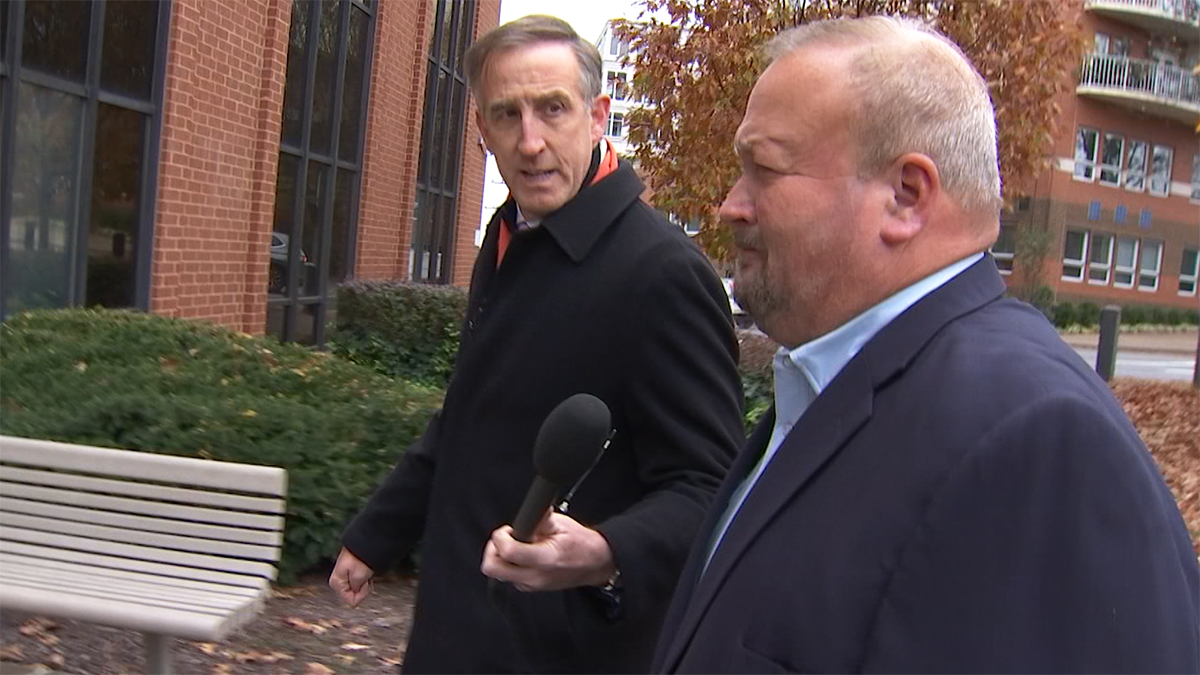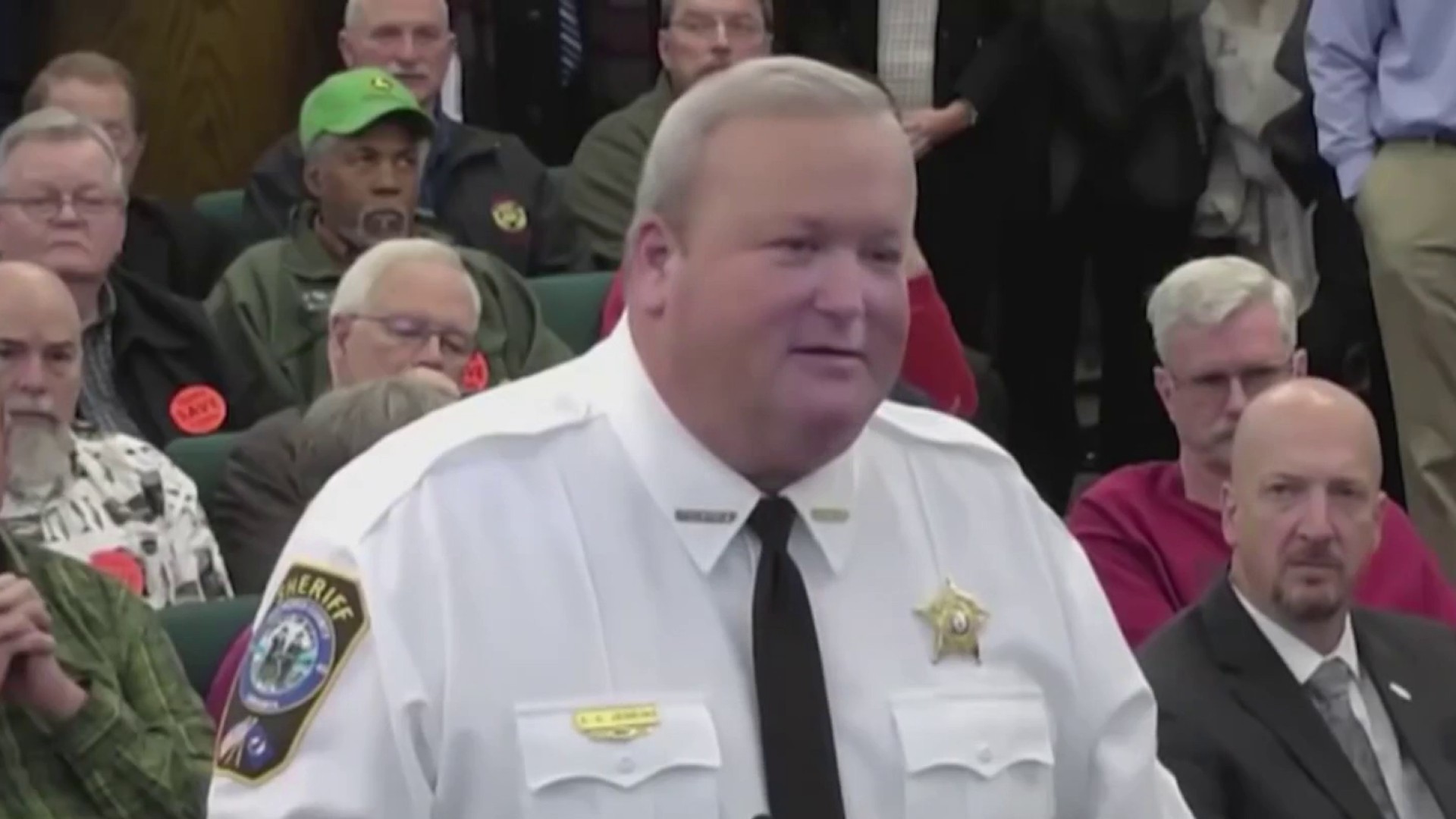Almost one year after the attack on the U.S. Capitol, lives are still changed. Hundreds of charged defendants still face jail time, and dozens are still recovering from injuries. And one local man has found a new mission.
In the earliest minutes of the riot, it wasn’t the sight, but the sound that stood out to U.S. Capitol Police Officer Harry Dunn.
"When I heard that initial distress call for they breached the line, we need more units, and the person's voice, a friend of mine, and I heard the terror in their voice, the fear in their voice,” Dunn said.
He remembers running to the west front of the Capitol building.
We've got the news you need to know to start your day. Sign up for the First & 4Most morning newsletter — delivered to your inbox daily. Sign up here.
"And that's where I got my first glimpse of the mob,” he said. “You couldn't see any grass. It was all covered by people from the Capitol as far down Pennsylvania Avenue as you could see, and it was just people, and they were coming towards us."
Some in the crowd used bats, sticks, poles and bear spray.
"Hell. Can I put it like that? When it hits you, you can't, you can't breathe in it because if you do breathe, you're breathing in this chemical that tears your insides,” Dunn said.
Investigations
Investigations by the News4 I-Team
The rioters injured more than 100 officers that day.
Dunn said he was lucky to only suffer a few bumps and bruises, but the trauma has stayed with him for a year and changed him.
"There were times when I would eat lunch in my car just because I didn't want to be around people, and I would just isolate myself,” he said. “There were times that I would just, I would just cry. I’d physically cry and just say, ‘Why the hell am I doing this? Is this even worth it?’”
Dunn grew up in Prince George's County, Maryland, played football at James Madison and then in the Canadian Football League before making a big shift, choosing to serve his country as a U.S. Capitol Police officer.
"There's a proud group of men and women that I work with," he said.
But Jan. 6 led to another shift for him, from officer to advocate. He found himself in the national spotlight advocating for a commission to investigate what led to the riots and testifying publicly at a July hearing of the U.S. House select committee investigating the insurrection.
There were times when I would eat lunch in my car just because I didn't want to be around people, and I would just isolate myself. There were times that I would just, I would just cry. I’d physically cry and just say, ‘Why the hell am I doing this? Is this even worth it?’
U.S. Capitol Police Officer Harry Dunn
The spotlight has taken its toll.
"It's, it's still changing,” he said. “I think every day is changing."
He’s been celebrated on social media, including by top government officials. But he’s also become the target of racist words and memes on extremist message boards.
“They created a noose, a GIF of me in a noose the day of my testimony, and then you got people that had the nerve to say that I'm lying, exaggerating about the things that I went through," he said.
Amid the mob that day, Dunn said he and some other Black officers faced racism, too.
"I'm not saying that Jan. 6 was a racist event,” he said. “I don't believe it was about race, but there were a lot of racist people there. I got called racial slurs, and it wasn't limited to just myself. I had several other coworkers. My Black coworkers shared with me their experiences of being called racial slurs.”
"When we saw the gallows and then we saw things ranging from like, you know, anti-Semitism, we saw, you know, racist remarks being made,” said Dr. Ray Winbush, director for urban research at Morgan State University. “And probably most importantly, the Confederate flag flying for the first time. Black folk look at it as being an indication of the continuing racism in this country, combined with so-called patriotism, and we see the results of it.”
Dunn and many of his fellow officers barely had time to absorb what had happened. He was right back at work the next morning at 7 a.m.
“Walking around Jan. 7, the sun came up and you're seeing all the destruction, the carnage,” Dunn said. “And I mean, the amazing staff of the Capitol, the Architect of the Capitol, those amazing members worked all night hard, tirelessly and still didn't put a dent in the cleanup. It was insane. It was insane.I remember walking around and I would see things, windows blown out, empty canisters of beer, pepper spray, batteries.”
One year later he said he continues to heal with the help of therapy.
"I'm not over it, and I can say, I don't think you ever get over it,” he said. “Some of my coworkers are still out there; some of them are still suffering with psychological effects and that bothers me."
And he anxiously watches the cases of those charged from Jan. 6.
"I am going to continue telling my story and my truth, and that's all I can do,” Dunn said. “I can't worry about what people choose to believe."
Reported by Scott MacFarlane, produced by Rick Yarborough, and shot and edited by Jeff Piper.



